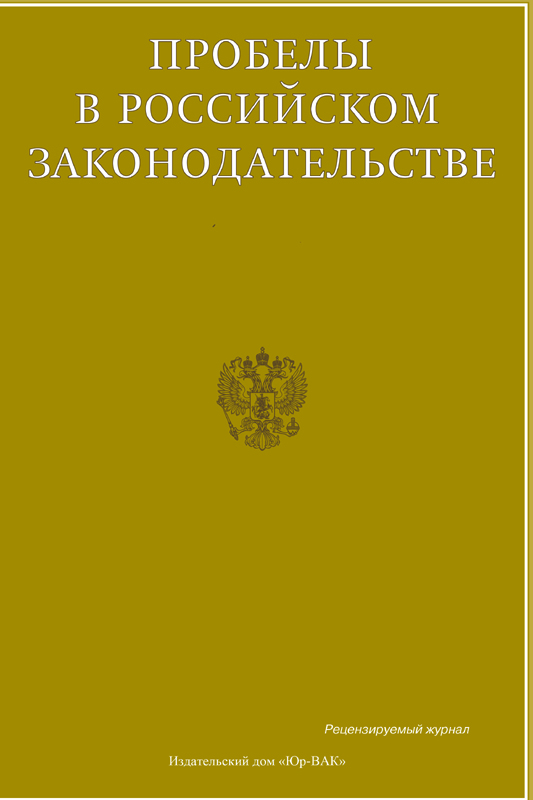Professional Training of Department of Internal Affairs Employees in Complex Force Actions in Operative and Service Situations
- 作者: Tkhagalegov A.A.1
-
隶属关系:
- North Caucasus Institute for Advanced Studies (branch) of the Krasnodar University of the Ministry of Internal Affairs of Russia
- 期: 卷 15, 编号 4 (2022)
- 页面: 105-109
- 栏目: Articles
- URL: https://journals.eco-vector.com/2072-3164/article/view/531589
- ID: 531589
如何引用文章
详细
The purpose of this study is to study the issues of professional training of police officers in complex power actions based on the development of a power complex exercise (SKU) from the Manual on the organization of physical training. The power complex of exercises implies the development of the following qualities during its systematic implementation: strength and endurance. In this complex, all exercises are selected in such a way as to work out and use the maximum number of muscle groups in the least amount of time, resulting in more fatigue of the body, and the more often it is performed, the faster the body adapts and gets used to the heavy physical loads, the feeling of fatigue and pain, which also affects the hardening of a person and overcoming the stage when his body refuses to work due to fatigue and pain, which in turn has a positive effect on the upcoming work of an internal affairs officer. After all, an extreme situation can take a law enforcement officer by surprise, and he is obliged to demonstrate readiness for the occurrence of such situations, and they should not in any way affect the quality of his work. This complex contains many exercises for various muscle groups, the main of which are the muscles of the arms (biceps, triceps) and the muscles of the legs (thigh muscles, calf muscles), and the high intensity of exercise puts pressure on the lungs and heart, forcing the lungs to absorb a lot of oxygen for short time, and the heart to pump more blood to the muscles at high speed. As a result, it can be considered a complete workout for the whole body. It has been established that this complex is an excellent test of the physical indicators of police officers, and can be used as an assessment of the development of each of the students.
全文:
作者简介
Azamat Tkhagalegov
North Caucasus Institute for Advanced Studies (branch) of the Krasnodar University of the Ministry of Internal Affairs of Russia
Email: kodzokov.aznaur@bk.ru
lieutenant of police, Lecturer of the Department of Physical Training Nalchik, Russia
参考
- Order of the Ministry of Internal Affairs of Russia dated July 1, 2017 No. 450 “On approval of the Manual on the organization of physical training in the internal affairs bodies of the Russian Federation” [Electronic resource] // Access mode: https://www.garant.ru/products/ipo/prime/doc/71647620/ (accessed 04/24/2022).
- Troyan E.I. Teaching the complex use of physical force in the professional training of students of educational organizations of the system of the Ministry of Internal Affairs of Russia // In the collection: Pedagogy and psychology in the activities of employees of internal affairs bodies: theory, methodology, practice. Materials of the All-Russian scientific-practical conference. Compiled by A.S. Dushkin, E.M. Marchenko. 2018. pp. 372-377.
- Goretsky I.I. Vocational training of police officers // Alley of Science. 2018. Vol. 3. No. 7 (23). pp. 746-749.
- Zhogov G.N., Dmitrieva A.S., Nikiforova E.Yu. Professional training and development of professional qualities of police officers // In the collection: Actual problems of the theory and practice of special training in internal affairs bodies. Collection of scientific articles. All-Russian Scientific and Practical Conference. Moscow, 2021, pp. 122-124.
- Korobkov S.V., Platonov D.A. Professional service and physical training in the formation of knowledge, skills and abilities for solving problems of operational and service activities of police officers // In the collection: Integration of science and practice in martial arts. Materials of the XVI international scientific-practical conference dedicated to the memory of the Honored Master of Sports of the USSR, Honored Trainer of the USSR, Professor Evgeny Mikhailovich Chumakov. 2017. pp. 105-108.
- Nemesh O.M. Ways to improve the efficiency of professional training of police officers // Eurasian legal journal. 2020. No. 9 (148). pp. 360-361.
- Prilepin E.P. Modern directions of increasing the effectiveness of professional-applied physical training. Innovatsionnaya nauka. 2016. No. 2-4. pp. 114-116.
- Kutimsky A.M., Karelin P.A. Physical training of police officers as one of the priority areas of professional activity of employees // Colloquium-journal. 2019. No. 9-4 (33). pp. 48-49.
- Kanukoev A.M. Professional-applied physical training of police officers: organizational and methodological aspect // Physical culture and health. 2022. No. 1 (81). pp. 16-19.
- Khazhirokov V.A. Professional-applied physical training of police officers, ways of its improvement // In the collection: Physical education and sport: topical issues of theory and practice. Collection of scientific papers of the participants of the All-Russian scientific-practical conference. 2017. pp. 174-181.
补充文件








